Iran Commences Legal Action Against Singer For Hijab-Related Song

Renowned Iranian singer Mehdi Yarrahi has been faced with legal action after releasing a song in support of the opposition to the mandatory hijab

Renowned Iranian singer Mehdi Yarrahi has been faced with legal action after releasing a song in support of the opposition to the mandatory hijab
Mizan News Agency, a media outlet under the jurisdiction of the Islamic Republic's judiciary, reported the commencement of legal action against Yarrahi after his latest release, "Rosarito...," (Your Veil), which offers vocal support to women opposing hijab regulations all over the country.
The agency reported that the song, which is a modified rendition of a four-year old track, has been deemed as "illegal and inconsistent with the ethical and societal norms of the Islamic community." It added that legal measures will be taken against the singer.
Yarrahi previously released a contentious song titled "Women's Anthem" during last year’s demonstrations and, in March, the singer revealed that he had been banned from public performances by the government.
This is in line with nationwide crackdowns against dissenting artists since the commencement of anti-regime protests in September.
Iran's Culture Minister, Mohammad Mehdi Esmaili, said that the only avenue for such artists to continue to practice was if they express remorse for endorsing the public protests.
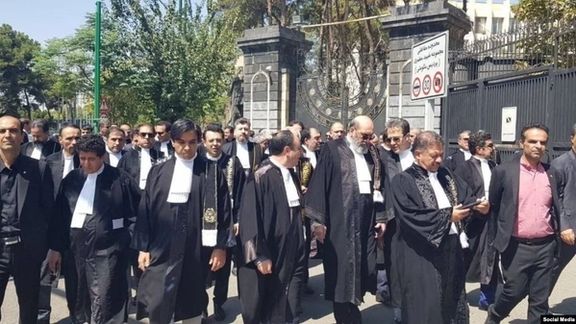
Iranian lawyers remain up in arms and are protesting from various regions after a recent decision by the government to take away their independent authority.
On August 20th, a demonstration, organized jointly by lawyers' association directors and the Central Bar Association, in response to a decision by the parliament to remove their autonomy was met with security forces who attempted to prevent their protests outside the parliament building.
The protesters were denied access to their mobile phones, which were confiscated and they were barred entry. This is directly in conflict with the independence and autonomy of the associations in Iran, which has been in place for more than seven decades.
Previous protests have taken place in front of the Guardian Council's premises, and further protests at the parliament building are planned against the decision that transfers key authorities held by lawyers' associations – including license issuance and exam conduction – to the Ministry of Economy and Finance.
This increased security and quelling of freedom of speech aligns with intensified measures by the regime to discourage possible protests ahead of the anniversary of last year’s nationwide uprising, ignited by the death of Mahsa Amini in police custody.
More than 500 protesters were killed and over 22,000 were arrested during the regime’s crackdown. Although protesters were given harsh sentences and were denied legal representation and due process in most cases, independent lawyers were the only hope of the prisoners to have their voices heard in Iran and abroad.
Bar associations, as long-standing professional and legal institutions in Iran, have consistently encountered pressures from governmental bodies and the judiciary, and have gradually lost authority as the regime has restricted their movements.
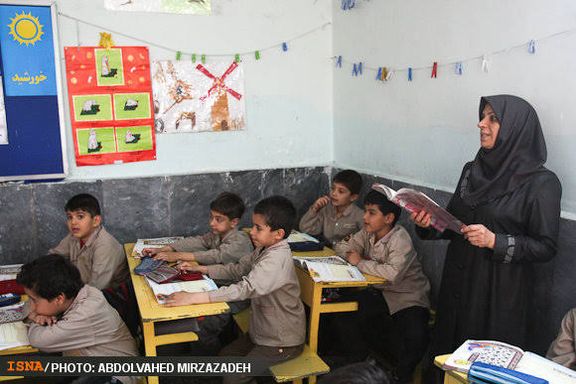
Iran's Teachers' Association says that a third of the country's educators earn less than $200 a month and has brought attention to their financial challenges.
The Association revealed that 32% of teachers in Iran earn less than $200 in monthly salary, contradicting minister Education Minister Reza Morad Sahraie's claim that no teacher receives a salary below this amount.
Citing salary slips from a comprehensive sample of three thousand teachers, the Teachers' Association highlighted the significant number of educators struggling with inadequate compensation. The data indicates that nearly one-third of teachers across the nation receive less than 100 million rials, which is equivalent to approximately $200.
Furthermore, the survey shed light on the broader spectrum of teacher salaries. A substantial 81% of educators reported earnings ranging from $110 to $300.
In response to the Minister's claims, the Teachers' Association voiced skepticism, stating, "It is plausible that the Minister's assertions are either untrue or indicative of a lack of control over the domain he oversees."
It is worth noting that Hossein Rasouli, an official from the Workers’ House, recently emphasized that the monthly minimum wage of less than $200 merely covers "nine days of a family's life." Rasouli further elaborated that the minimum monthly wage for workers in Iran falls short of eighty million rials (approximately $150 USD), emphasizing the ongoing economic challenges.
The issue of inadequate salaries is not new to Iran. Real incomes have struggled to keep pace with inflation since the establishment of the Islamic Republic in 1979. Earlier reports from mid-2022 highlighted a staggering 300% increase in rents in Tehran over the span of three years, further underscoring the economic pressures faced by citizens.
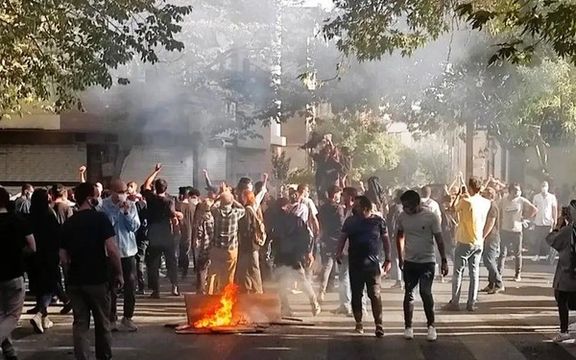
A senior aide to Iran's Supreme Leader asserts that the regime remains firmly entrenched in a fortress, guarded by a devoted religious group under all circumstances.
Gen. Yadollah Javani, formerly known as the Political Deputy to the IRGC Commander and presently serving as the Deputy for Political Affairs for Ali Khamenei within the IRGC, addressed a gathering aimed at "strengthening the Basij militia." He conveyed that the Israeli evaluation of the 2022 protests in Iran indicated their disregard for the potency, authenticity, and social deterrent capabilities of religious Iranians.
Entekhab website in Tehran quoted Javani at the gathering in Mashhad that the enemies wanted to sow despair among the Iranian people and officials and suggested that the government should free their minds from the clutches of the enemy.
The use of jargon in this context suggests that Javani was deeply affected by the extensive protests that occurred throughout Iran over a span of several months. Social media analysts have pointed out that the General appears to believe that the people supporting the current regime are a minority group and that they are surrounded by a larger opposition movement.
Javani's comment also sounded like a confession to the fact that the regime depends on this minority for its survival.
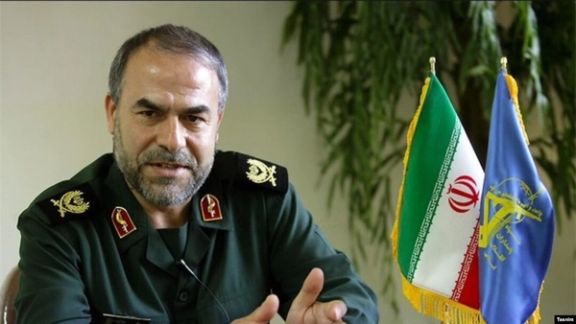
Meanwhile, borrowing Khamenei's idea of the "explanation jihad," Javani called for propagating the regime's narrative about the protests, mindless of the fact that this narrative may maintain the regime's current supporters in the "fortress," but it is unlikely to convince other Iranians to join them. There are also indications that as Iranian sociologists have been warning, some of those who are leaving Iran are disillusioned former regime supporters.
The IRGC General suggested that the regime should propagate former IRGC Qods Force Commander Qasem Soleimani's school of thought. However, no matter what Soleimani's school of thought was, what most Iranians remember about him are the stories of giving suitcases full of cash handouts to terrorist groups in the Middle East.
He went on to assert that following the collapse of the Soviet Union, the Islamic Republic effectively thwarted the United States' aspirations of global dominance. Javani further contended that the "Woman, Life, Freedom" movement aimed to cultivate animosity among Iranian youth towards individuals of religious faith.
Contrary to this, the prevailing viewpoint among a majority of pundits and politicians is that the government's inability to effectively address the nation's economic challenges served as a significant catalyst for the burgeoning opposition among the youth. This sentiment is compounded by the perception that the authorities are erecting various barriers that impede young Iranians from pursuing their preferred lifestyles.
Meanwhile, mirroring Javani's statement, another event highlighted the evident apprehension among Iranian officials as the anniversary of Mahsa Amini's death in custody in September 2022 draws near. In an interview, Deputy Judiciary Chief Sadeq Rahimi issued a warning, stating that Iranian intelligence agencies are prepared to identify individuals potentially inclined to participate in street protests in the upcoming days.
Rahimi particularly warned former detained protesters who were freed after serving some time in jail that their behavior will be scrutinized by security and intelligence officers.
Many of these individuals who were apparently pardoned by Khamenei, were arrested again after a few weeks and others, including the family members of those who were killed or blinded during the protests were arrested and jailed during the past few weeks.
Rahimi claimed without naming anyone or any country or presenting any evidence that "the enemies" are planning to disrupt peace and security in Iran during the coming weeks by provoking Iranian youths and creating problems for the people and the regime.
Neither Javani nor Rahimi addressed the core issues of economic challenges and constraints on social freedoms, which experts widely consider to be the primary driving forces behind the massive street protests by Iranians against the regime. These crucial factors have led millions to voice their discontent and take to the streets.
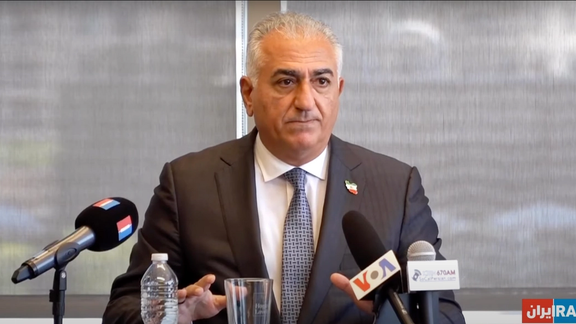
Iran's exiled prince has urged Iranians across the nation and around the world to hold protests in commemoration of the anniversary of Mahsa Amini's tragic killing.
Speaking during a meeting with reporters in Los Angeles, Prince Reza Pahlavi a prominent opposition leader, emphasized that the focus of these protests should extend beyond Tehran, encompassing all regions of Iran.
Pahlavi asserted that should protests proliferate across different regions of Iran, the Islamic Republic could find itself obligated to distribute its repressive forces to various areas. He argued that this dispersal would potentially enhance the effectiveness of countermeasures against governmental forces.
Mahsa Amini, a 22-year-old woman was arrested in the street by Iran’s morality or hijab police in mid-September and hours later was transferred to hospital with fatal head injuries, where she died three days later. The news immediately sparked nationwide protests, which lasted for five months and posed the most serious challenge to the Islamic Republic in its 44-year history.
Prince Pahlavi outlined the significance of Mahsa Amini's anniversary, highlighting it as an exceptional opportunity to strengthen the resolve of the people and sustain the momentum of protests and strikes against the Islamic Republic. He also emphasized that this movement's progress would experience both ebbs and flows, underscoring the difference between a campaign and a cause.
Describing the combination of protests and strikes as a potent strategy in confronting the Islamic Republic, he noted: "In my view, more than calling [the movement] a campaign, I think it's really a cause."
Prince Reza Pahlavi pointed out the considerable number of Iranians living abroad, stating, "We have more than eight million Iranians living abroad; if you take 10% of those to be active participants in the movement, it will change the entire dynamic."
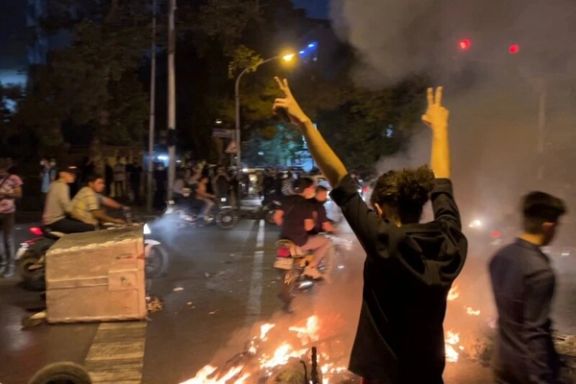
He called on democratic countries worldwide to support Iranians in their journey towards democracy, noting the shared values of human rights, freedom, and an end to discrimination, which stand in stark contrast to the Iranian regime's stance.
Concurrently, 27 international groups and organizations have united in a call for a global gathering on September 16, coinciding with the first anniversary of Mahsa Amini's tragic death. These groups are urging global unity on this significant occasion, setting the stage for demonstrations in various cities and countries worldwide.
However, amidst the buildup to the anniversary, The Wall Street Journal has highlighted the Iranian government's intensified efforts to suppress protesters and activists. This crackdown reflects the government's deep-seated concerns that the intensity of the protest movement remains undiminished.
Mahmoud Amiri-Moghaddam, the director of Iran Human Rights, disclosed that the government is targeting individuals who may have been leaders or participants in past protests during this anniversary period.
According to the latest report by the United Nations High Commissioner for Human Rights, released on August 8, over 20,000 individuals have been arrested by agents of the Islamic Republic since the inception of the revolutionary uprising. These arrests pertain to participation in or support for the protests. Many of those detained have been granted temporary release on bail, while their cases remain pending within security organizations. Hundreds have also been re-arrested.
As global attention remains on Iran's human rights situation, Antonio Guterres, the Secretary-General of the United Nations, has recently called for immediate action by the Iranian government. He has emphasized the need to halt executions, release political prisoners of conscience, human rights activists, lawyers, and journalists in the country.
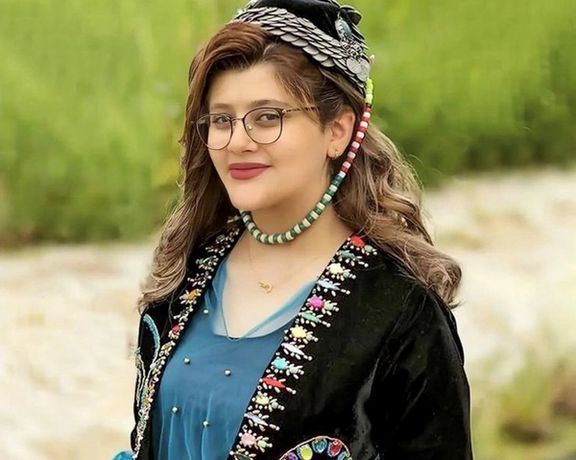
Iranian conservative Asadollah Badamchian claimed without evidence Mahsa Amini, who died in morality police custody, supported the a Kurdish militant group.
Badamchian, who is a long-time regime insider, accused the symbol of the antiregime movement of being a part of the Kurdish Komala Party three weeks before her death anniversary, expected to be a tumultuous period in Iran.
The Islamic Republic designates Kurdish armed groups operating in western provinces of Iran as either "terrorist groups" or "anti-revolutionary." These groups, however, assert that their armed campaigns are aimed at "defending the rights of the Kurds."
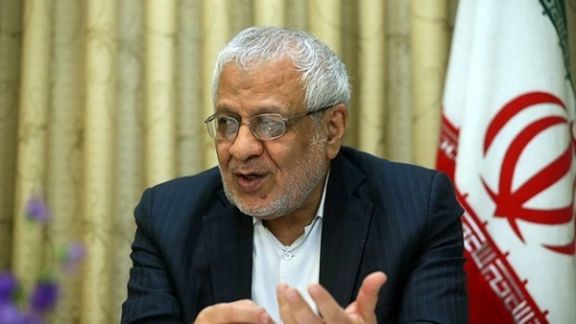
Badamchian in an interview with ILNA alleged that there exists a photograph depicting Mahsa Amini engaged in dancing with the Komala Party.
Badamchian tried to defend Amini's arrest by the morality policy last September, saying that "she was inappropriately dressed." During this process, Amini became visibly agitated, subsequently collapsing and passing out. Subsequent to these events, an organized movement, both domestically and internationally, emerged involving media outlets such as BBC, CNN, Manoto TV, and Zionists, alleging that Mahsa Amini had been fatally harmed by the morality police.”
Mahsa Amini received fatal head injuries during the brief period she was under arrest.
Badamchian, a hardline principlist politician with two parliamentary terms to his name, and a founding member of the Islamic Coalition Party, even claimed that the regime exhibited some “leniency” toward Mahsa Amini.
Amidst the fallout from Mahsa Amini's tragic incident, a series of protests erupted, resulting in the loss of over 500 lives at the hands of the regime's agents. Approximately 22,000 arrests were made, with seven executions and additional death sentences on dubious charges casting a shadow over the broader discourse.






